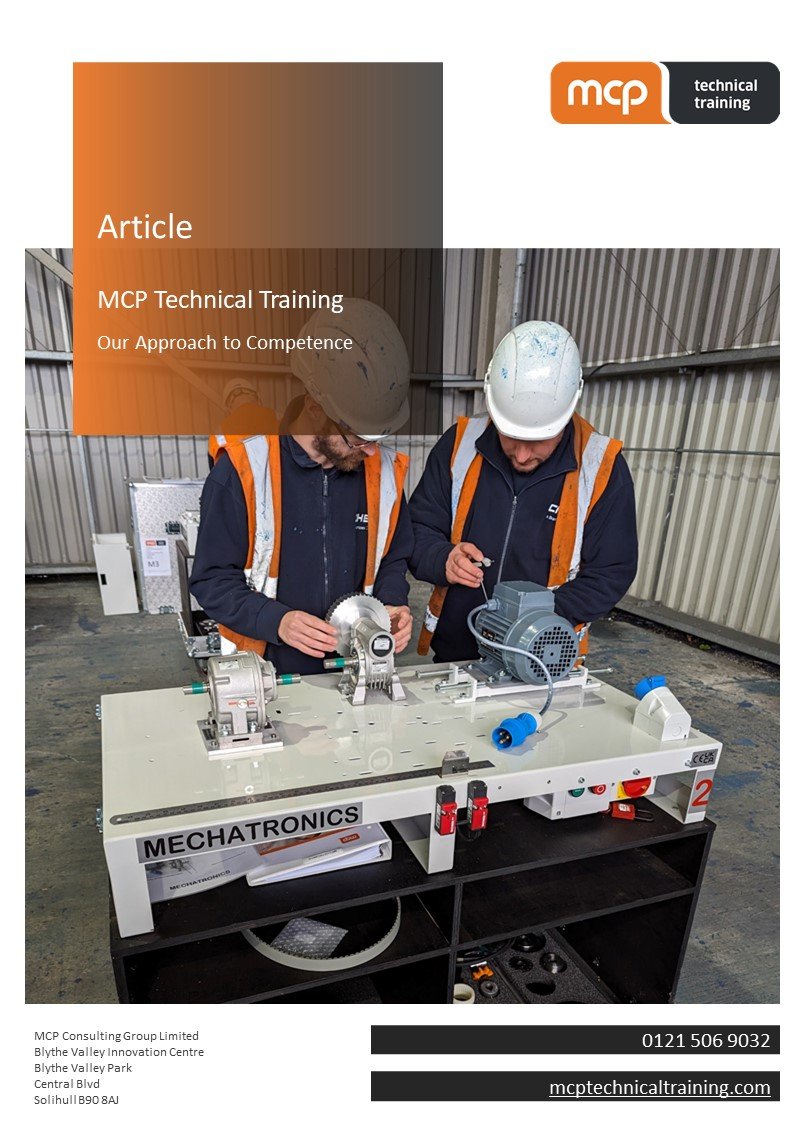Two Competence Approaches
Legal Responsibilities
It is more important than ever that industrial employers understand their legal responsibility to make sure their technicians are competent to carry out their tasks. Here, John Saysell, Director of Technical Training for MCP Consulting Group Ltd. outlines two alternative approaches.
Define Competence
The first stage in any exercise of this type is to define competence. In simple terms, it means that the task is done safely, to the right standard, within a reasonable length of time. Over the past 20 years, competence has come to the forefront of MCP’s discussions with industry.
There are two main approaches to establishing training needs, namely the classic Training Needs Analysis (TNA) and a Competence-Based Approach.
The classic TNA is a much broader way of examining what maintenance technicians could get involved in. The competence-based approach is narrower, but an output from it is actual evidence of competence.
The Gains
Among the gains from an effective training and development plan are opportunities to improve morale, motivation and job satisfaction; improve performance and customer service and clearly define maintenance roles. It will help you to improve staff retention and comply with legislation, as well as provide accurate evidence of competence and embed a transparent grading structure. It will allow you to align training with business needs and reduce reliance on contracted staff.
How can you decide which approach is best for you and your team? It may even be that a mix of the two would be better suited. To learn more about the differences, we have prepared a free downloadable document called Our Approach to Competence. You can download your copy by clicking here or this image:
MCP offer a large range of technical skills training courses to ensure your technicians and engineers are up to date with regulations, best practices and can competently complete their tasks.












